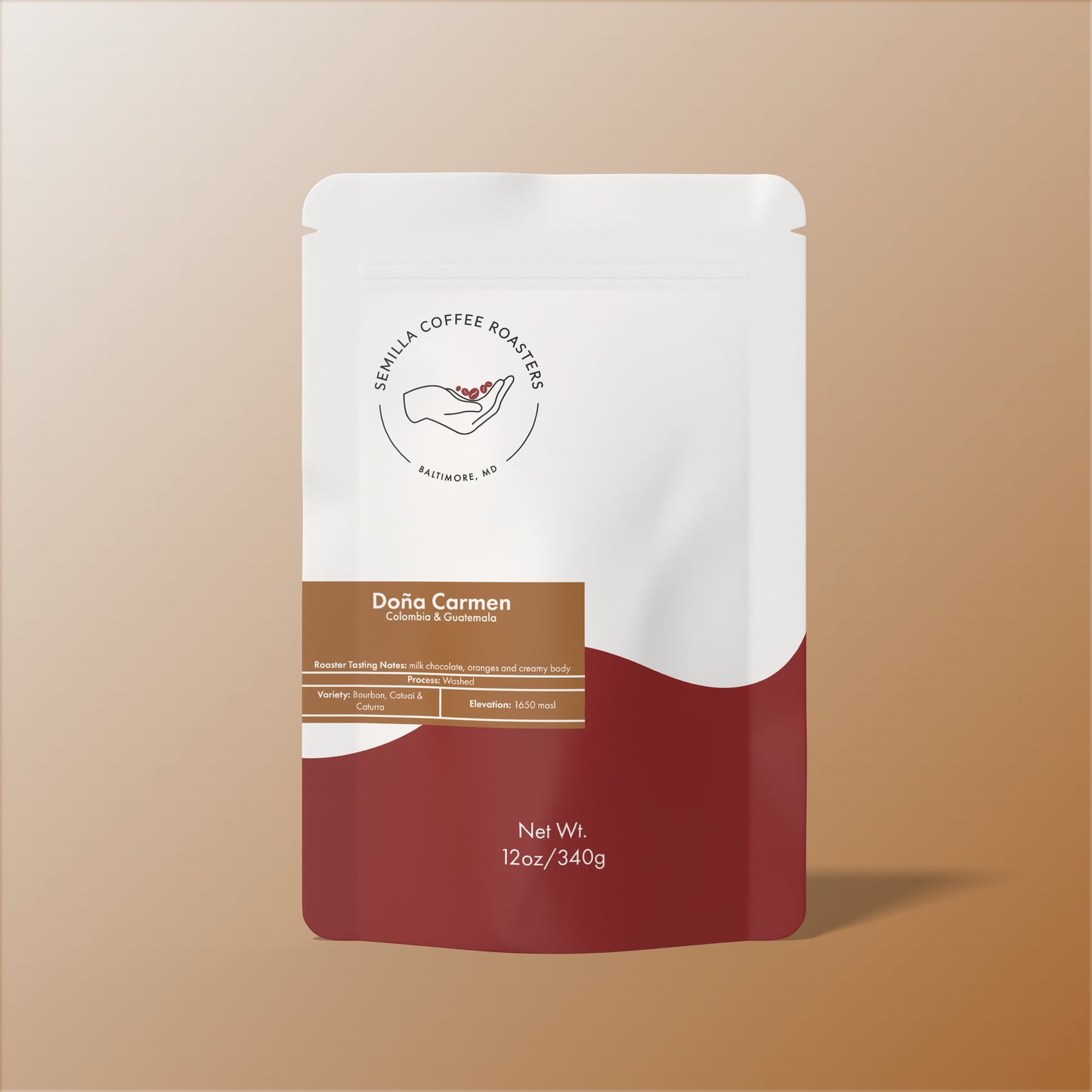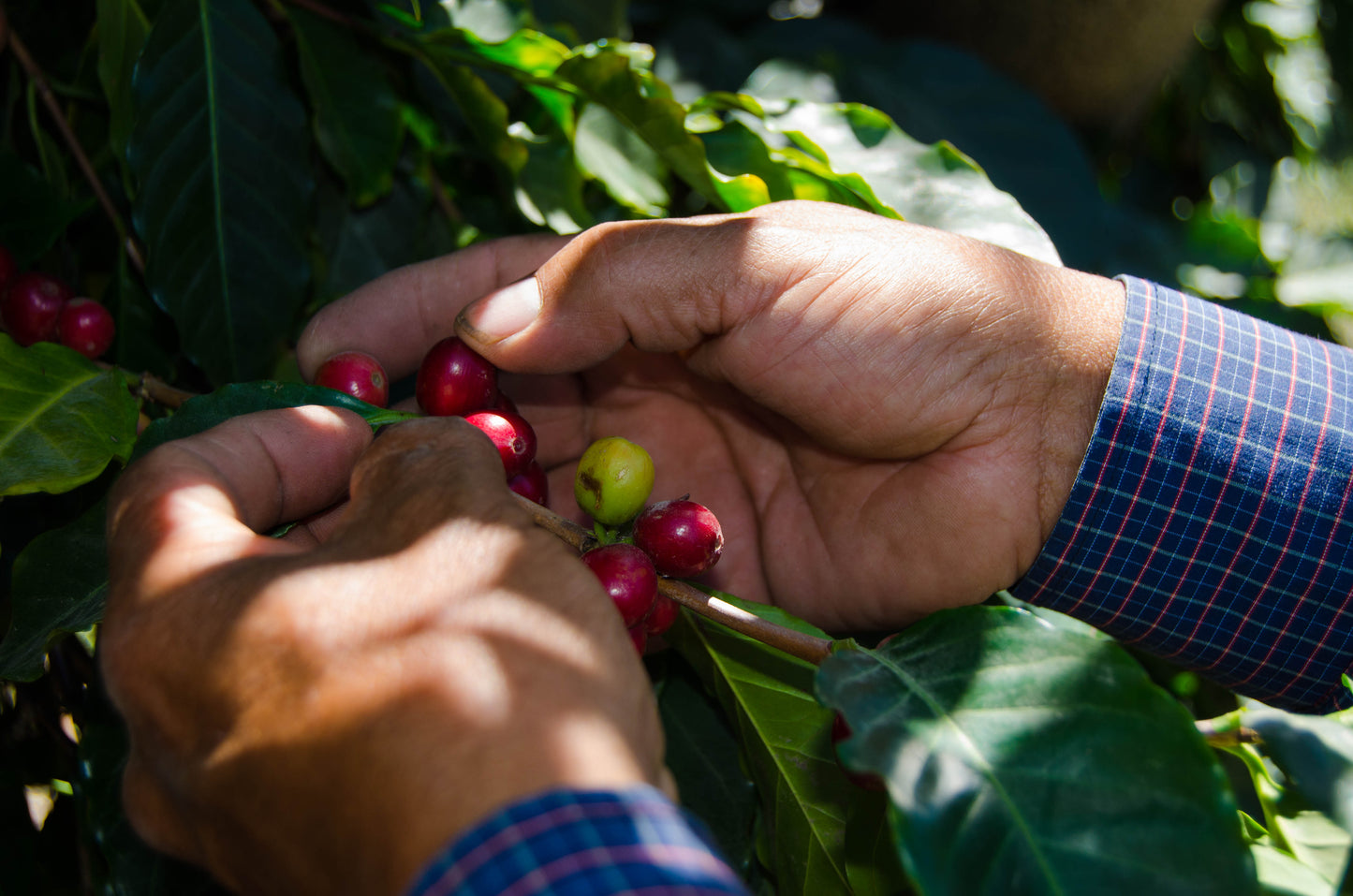Doña Carmen Espresso Blend - Colombia & Guatemala | Medium/Dark Roast
Doña Carmen Espresso Blend - Colombia & Guatemala | Medium/Dark Roast
Couldn't load pickup availability
Traceability of the Coffee
Roast Level: Dark Roast
Variety: Bourbon, Caturra, Castillo and Colombia
Roaster Tasting Notes: Milk Chocolate, Oranges and creamy body
Score: 85 points
Crop Year: 2025
Process: Washed
Altitude: 1200 -1500 masl
About Doña Carmen
In honor of my grandmother Doña Carmen, we created the perfect daily blend. A 60% El Alma from Guatemala and a 40% from El Cauca, Colombia. It is the perfect match for your cream or non-dairy milk, with a chocolate and creamy taste. Tastes amazing on espresso because the citrus from El Alma comes through in a settled way and blends delightfully with the chocolate notes.
This carefully crafted blend features high-quality Arabica coffee beans (Specialty grade) sourced from the lush, mountainous regions of Colombia and Guatemala. These beans are carefully roasted to bring out the rich and complex flavors of each origin, delivering a satisfying and balanced taste with notes of chocolate, caramel, and berries.
El Alma-Guatemala
For three generations, we’ve grown coffee in the highlands of Huehuetenango, and in the past twenty years, we’ve grown to partner with other producing families, cooperatives, and associations across Guatemala. Our mission is to connect these beautiful families and their coffees with roasters around the world.
A sustainable sourcing approach is similar to our strategy as farmers and sellers: everything has a home. From the 88+ COE submissions to the 82-point mill-outs and last picks sold to local consolidators, there's value. Our intention with Alma involves sourcing bright, fruited coffees of 84.5+ quality-- coffees with a lot of souls -- with our vendor partners from Huehue to Jalapa. Our QC team based in Guatemala is meticulously selecting a consistent, clean, and lightly fruity blend. La Alma means the Soul, and we hope this blend will be the vitality and warmth of your espresso or house coffee.
For every pound of Alma sold, $0.05 goes directly to our partners at Habitat for Humanity Guatemala to support their Smokeless Stove Program. These clean stoves have impacted families for decades by increasing indoor air quality and wood-fuel efficiency while decreasing cooking time. From the 2021 crop Alma sales alone, 42 families were able to receive a new stove. In the future, we plan to invest in home-building origin trips with volunteers from every link in the coffee value chain.






